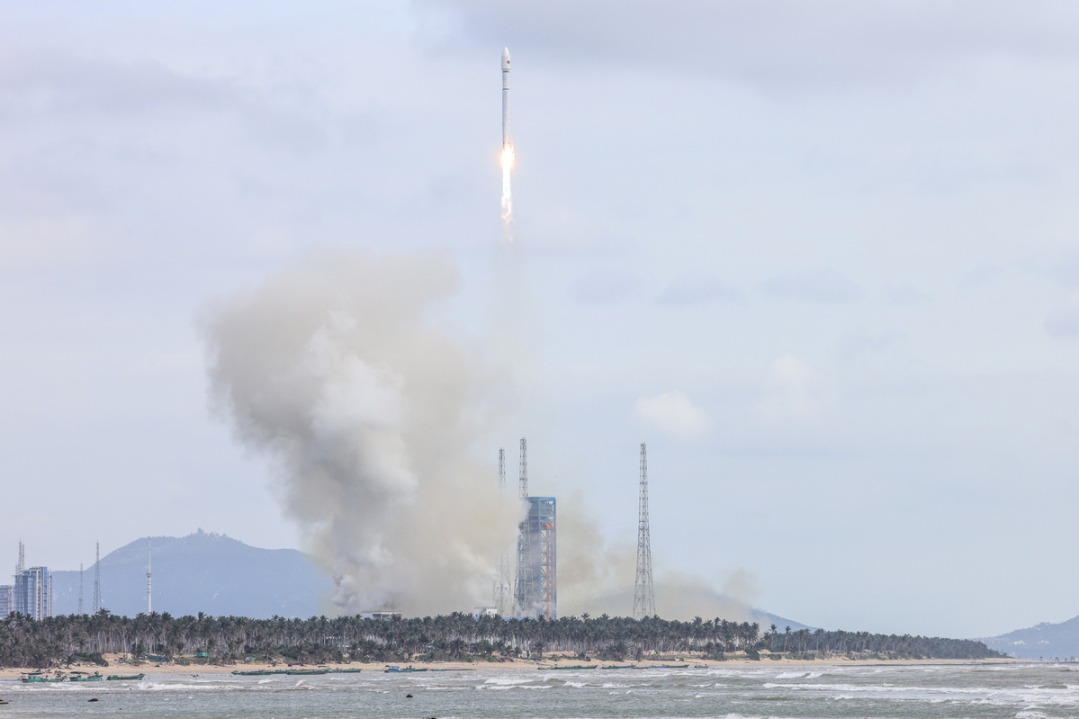Chinese scientists unravel mystery behind extreme weight loss in advanced cancer patients

BEIJING -- Chinese scientists have identified a cytokine produced by tumor cells as the key factor driving irreversible fat loss with the progression of cancer cachexia, a severe condition affecting late-stage cancer patients.
Their findings, published Thursday in the journal Cell Metabolism, reveal that a cytokine called macrophage migration inhibitory factor, secreted by tumors, plays a key role in driving irreversible fat loss in cachexia.
The researchers found that MIF triggers chronic inflammation in fat tissue while suppressing the ability of stem cells to become mature fat cells. This process results in significant fat depletion, contributing to the progression of cachexia.
Cancer cachexia is a debilitating condition that accounts for 20 percent of all cancer-related deaths. It leads to severe weight loss, muscle dystrophy, loss of appetite, and decline in physical function. Yet mechanisms underlying its development have remained poorly understood.
Once cachexia sets in, patients become too frail to tolerate cancer therapies, yet nutritional support alone can't reverse their functional impairment, according to Hu Xinli, corresponding author and researcher at the Institute of Molecular Medicine at Peking University.
Cancer cachexia has traditionally been considered as a metabolic syndrome induced by tumors, with nutritional support being the primary intervention. However, clinical observations have shown that even with adequate nutrition, patients are unable to regain weight.
The team led by Xiao Ruiping, dean of Peking University's Future Technology Institute, and Hu, discovered that MIF triggers chronic inflammation and fibrosis in fat tissue through interaction with its receptor ACKR3. This impairs the ability of stem cells to develop into functional fat cells, even if there are enough nutrients.
Further research revealed a strong correlation between elevated MIF levels in the blood and the degree of weight loss in the patients with lung, stomach or colorectal cancers. In the mouse models of cancer cachexia, inhibiting MIF-ACKRs using genetic or pharmacological approaches effectively alleviated fat loss and other clinical manifestations of cachexia.
"For cachexia patients, it is difficult to store energy in their fat tissue. The problem is not a lack of nutrition, but rather a disruption in how nutrients are normally distributed in the body," Hu said, "MIF is a key factor that leads to the irreversible damage of fat tissue," she added.
"If we can fix this problem, patients will be able to get their fat tissue working properly again. Healthy fat tissue is essential for keeping the whole body strong. This would enable the patient to handle cancer therapies and give them more options for treatments," Hu said.
Interestingly, the researchers found that after exercise, mice had reduced MIF levels in their blood. The number of stem cells producing inflammatory cytokines in their subcutaneous fat tissue remained stable, but the number of stem cells with the capacity to develop into mature fat cells was increased.
"This indicates that maintaining metabolic health through exercise can be an effective therapy for patients. However, patients are often too weak to engage in physical activity at this stage," Hu noted.
Xiao believes that this research helps scientists understand the pathological mechanisms of cancer cachexia and key molecules involved, providing new targets for cachexia treatment. This could potentially lead to new strategies to improve the quality of life for cancer patients and extend their survival.
The research team is now working on the development of inhibitors of MIF-ACKR3, hoping to create effective drugs to treat cancer cachexia as soon as possible.
- 'Book of Songs' from Chinese imperial tomb proves oldest complete copy ever found
- Exhibition highlighting the 'Two Airlines Incident' opens in Tianjin
- Average life expectancy in Beijing rises to 83.93 years
- Energy drink overdose sends delivery worker to hospital
- GBA and Hainan deepening cooperation to boost innovation and sustainable growth
- Beijing mulls including the costs of embryo freezing and preservation in medical insurance





































